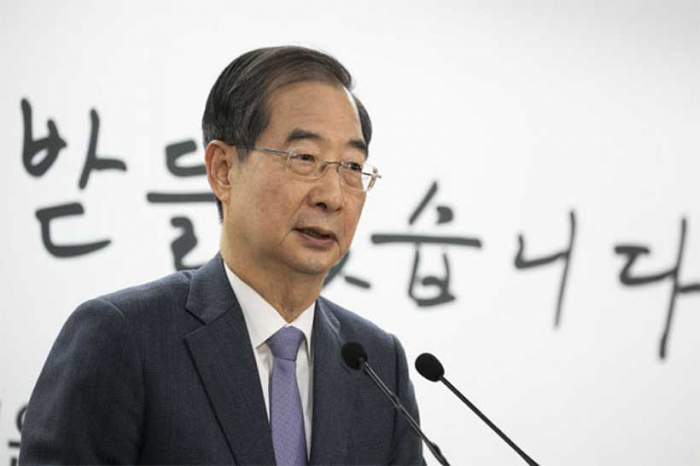South Korea’s opposition-controlled parliament has impeached the acting president, throwing the country into further political turmoil.
Lawmakers on Friday passed a motion to impeach Han Duck-soo, who is also the prime minister, after he resisted pressure to appoint three justices to fill vacancies on the Constitutional Court.
It marks the first time an acting president has been impeached in South Korea and comes less than two weeks after President Yoon Suk Yeol was suspended from his duties after his failed attempt to impose martial law shook the nation.
Finance minister Choi Sang-mok assumed the acting presidency — the country’s third leader in less than a month.
Choi asked the military to step up vigilance, warning that North Korea could possibly take advantage of the country’s political situation. “It is important to minimise national chaos. I’ll do my best to stabilise state affairs,” he said in a statement.
Han’s impeachment vote came as the Constitutional Court opened hearings on Yoon’s impeachment over his shortlived attempt to reinstate military rule this month. The court has six months to decide whether to uphold Yoon’s impeachment or reinstate him.
The growing political turmoil is increasing risks to the economy at a time when export momentum is slowing and the country is bracing for higher tariffs once Donald Trump becomes US president next month, said analysts.
South Korea’s won declined 0.5 per cent against the dollar to its weakest level since 2009 on Friday, while the Kospi fell 1 per cent on heavy foreign selling.
“There is some legal uncertainty over conditions needed for impeaching the acting president but, regardless of that, impeaching Han could increase concern over the economy’s external credibility,” said Shin Yul, a politics professor at Myongji University in Seoul.
Impeaching the prime minister requires a simple majority in parliament, but the ruling party claimed that the voting results were invalid and filed an injunction against Han’s impeachment, arguing that the two-thirds majority needed to impeach a president should also apply to acting presidents.
Han said he respected the parliament’s decision and would wait for the Constitutional Court’s ruling on whether to confirm his impeachment.
Lee Jae-myung, leader of the main opposition Democratic party, accused Han of “acting for insurrection”.
Han, a career bureaucrat and Yoon appointee, had refused to approve three justices to the nine-member court until there was an agreement between the ruling and opposition parties over the appointments.
Yoon’s conservative ruling People Power party boycotted opposition-led votes this week to try to appoint the judges.
In principle, seven justices are needed for the court to consider an impeachment and a minimum of six votes are required to remove a president from office.
But the court currently only has six members, meaning only one dissenting vote would be needed to quash Yoon’s impeachment. The terms of two of its justices are also set to expire in April.
Constitutional Court has said it can deliberate without the full bench.
But the Democratic party has warned of a cascade of impeachments against cabinet members until they fill the court’s three vacancies.
Yoon, who has denied any wrongdoing, is facing a third summons by the country’s anti-corruption agency for questioning on charges of treason and abuse of power.
Prosecutors on Friday also charged former defence minister Kim Yong-hyun for spearheading Yoon’s brief attempt to impose martial law.
Financial Times
More about:
















































